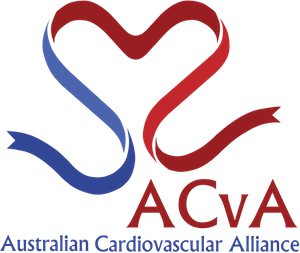Building the Australian Cardiovascular disease Data Commons (ACDC)
The Australian Cardiovascular disease Data Commons (ACDC) will be a comprehensive, secure, scalable, and internationally integrated data infrastructure connected to global best practice analysis platforms. The ACDC aims to provide access to pooled data from approximately 400,000 individuals across up to 18 clinical cohorts within Australia, enabling researchers to take the next leap towards protecting people at risk of coronary artery disease.
Project timeline: June 2023 to December 2027
Introduction
In June 2023, the ACDC project, led by Professor Peter Meikle from the Baker Heart and Diabetes Institute, was awarded a $3M MRFF National Critical Research Infrastructure Grant. Additional funding from Bioplatforms Australia and in-kind contributions from partners bring the total project value to approximately $9M.
A successful pilot project by the Australian BioCommons and partners laid the groundwork for a data sharing platform capable of securely managing significant human omics data holdings. The pilot project was funded by Bioplatforms Australia (NCRIS), University of Sydney (MRFF) and the Baker Heart and Diabetes Institute (Heart Foundation), with additional contributions from the University of Sydney and the Baker Heart and Diabetes Institute.
The newly created data sharing platform supports the management, analysis and sharing of Australian clinical datasets. It is powered by Gen3 and features a defined data dictionary across all associated studies, integrated federated identity and access management, and synthetic non-sensitive data for security and user testing.
Why coronary artery disease?
In 2021, 25% of all deaths in Australia were attributed to cardiovascular disease.¹ Coronary artery disease (CAD) is the most common type of cardiovascular disease, both in terms of deaths and hospitalisations. Despite developing over several years, CAD is difficult to detect and many patients have no warning symptoms.
However, data-intensive biomarker research techniques such as genomics, metabolomics, proteomics and immuno-phenotyping, paired with advances in image processing, machine learning, and systems biology pipelines, present opportunities to better understand CAD and identify those at risk.
ACDC Project Outline
Key phases of the project include:
Infrastructure establishment
Cohort onboarding and harmonisation
Testing, validation and use cases
User experience documentation and training
Governance and intellectual property arrangements.
Previously, researchers could not readily access cross-study cohorts of research data from independent studies for combinatorial analysis. Once fully established, the ACDC will be a comprehensive, secure, scalable, and internationally integrated data infrastructure connected to global best practice analysis platforms.
The ACDC will enable identification of novel mechanistic insights and predictive biomarkers for CAD through combined analysis of data from around 400,000 individuals (see diagram). Further, the ACDC will facilitate a translational pipeline to ensure the deployment and evaluation of these predictors within clinical practice. Significantly, this will be one of Australia’s first global standards-based human data commons and will yield infrastructure that will directly inform and benefit other data intensive precision medicine programs.
Governance
The ACDC project is led by the Baker Heart and Diabetes Institute and funded by the Medical Research Future Fund (MRFF) and Bioplatforms Australia (MRFF 2022 National Critical Research Infrastructure Grant: Building an Australian Cardiovascular disease Data Commons). Additional contributions are being made by the Baker Heart and Diabetes Institute, ACvA, University of Sydney, 23Strands, CSL Limited, Australian BioCommons, data custodians and other partners.
Leading the critical digital infrastructure component, the Australian BioCommons is a core partner in the ACDC project. The ACDC is part of the Australian BioCommons Human Genome Informatics activity.
Structural overview of the ACDC.
Scientific Advisory Committee
The Scientific Advisory Committee is a multi-disciplinary committee containing clinicians, researchers, digital infrastructure experts, and consumer representatives that provides advice and oversight on the scientific and methodological aspects of the project. They are responsible for shaping the scientific objectives of the platform and providing feedback to the Project Management Committee to ensure that the development and implementation of the ACDC platform aligns with those objectives. Members of the Scientific Advisory Committee are listed below.
| Name | Institution | Position | Role |
|---|
Reference:
Australian Government Australian Institute of Health and Welfare, ‘Heart, stroke and vascular disease: Australian facts’ web report, accessed September 22, 2023.
Project partners:









